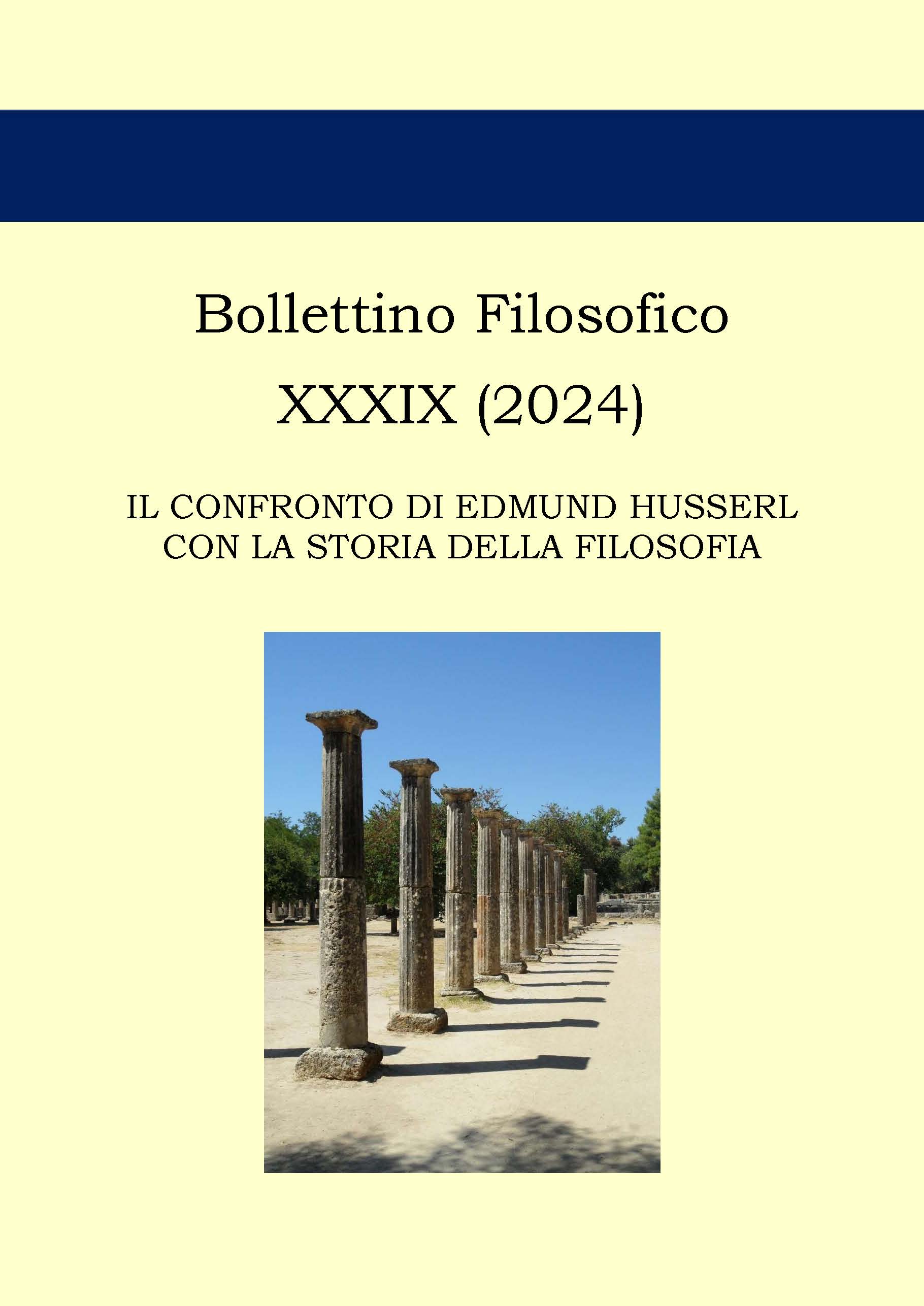Edonismo, sentimentalismo morale e riflessione emotiva. Husserl e la storia del dibattito in etica
Abstract
Husserl had never hidden the essentially ethical connotation of phenomenological practice. Since it is configured as an attitude, phenomenology cannot ignore the ethical dimension in which it is necessarily inscribed. The same goes for history: before being an objectum with which the phenomenologist must deal, history is a dimension in which the phenomenologist carries out his research. Therefore, it is fruitful to look at the investigation that Husserl pursues on the history of ethics. In the introduction to ethics course of 1920-24 Husserl tackles hedonism and moral sentimentalism. Both perspectives have seen, without becoming authentically aware of it, the transcendental role played by feeling acts [Gemütsakte] with respect to the axiological sphere. Husserlian phenomenology aims to bring this discovery to consciousness, showing its advantages in ethical debate.
Keywords: Ethics, Hedonism, History, Husserl, Sentimentality
Downloads
Copyright (c) 2024 Alessandro Poltronieri

This work is licensed under a Creative Commons Attribution 4.0 International License.
Bollettino Filosofico pubblica in internet, ad accesso aperto, con licenza:
|
|
CCPL Creative Commons Attribution |
L'autore conserva il copyright sul suo contributo, consentendo tuttavia a chiunque "di riprodurre, distribuire, comunicare al pubblico, esporre in pubblico, rappresentare, eseguire e recitare l'opera", purché siano correttamente citati l'autore e il titolo della rivista. L’autore, al momento della proposta di pubblicazione, è inoltre tenuto a dichiarare che il contenuto e l’organizzazione dell’opera è originale e non compromette in alcun modo i diritti di terzi, né gli obblighi connessi alla salvaguardia di diritti morali ed economici di altri autori o di altri aventi diritto, sia per testi, immagini, foto, tabelle, sia per altre parti di cui il contributo può essere composto. L’autore dichiara altresì di essere a conoscenza delle sanzioni previste dal codice penale e dalle leggi speciali per l’ipotesi di falsità in atti ed uso di atti falsi, e che pertanto Bollettino Filosofico è esente da qualsiasi responsabilità di qualsivoglia natura, civile, amministrativa o penale, e sarà dall'autore tenuta indenne da qualsiasi richiesta o rivendicazione da parte di terzi.
